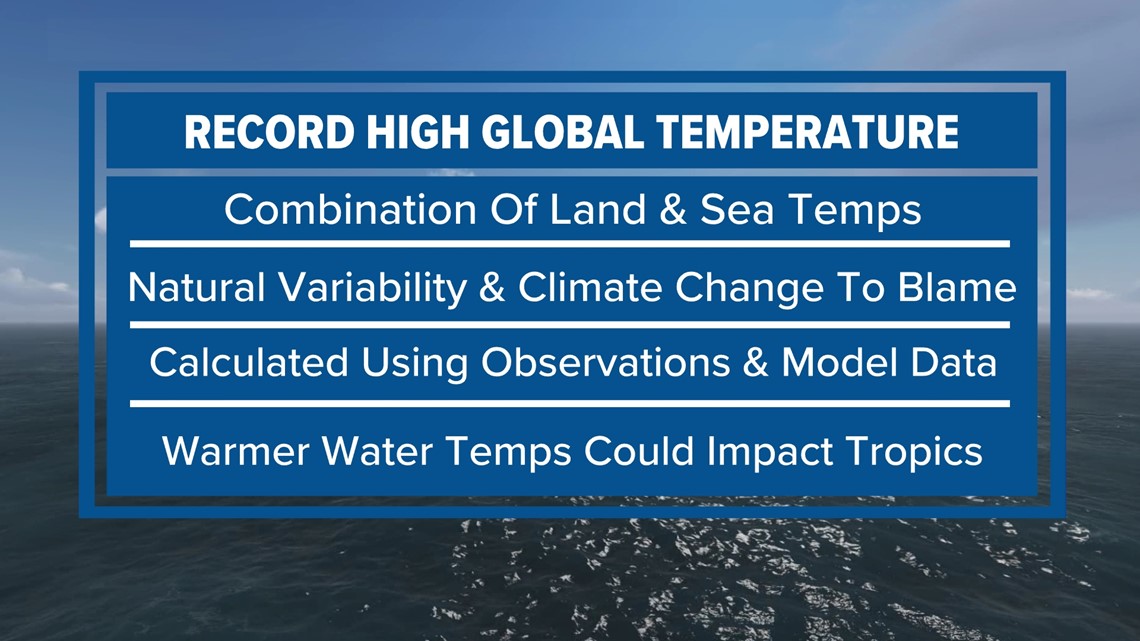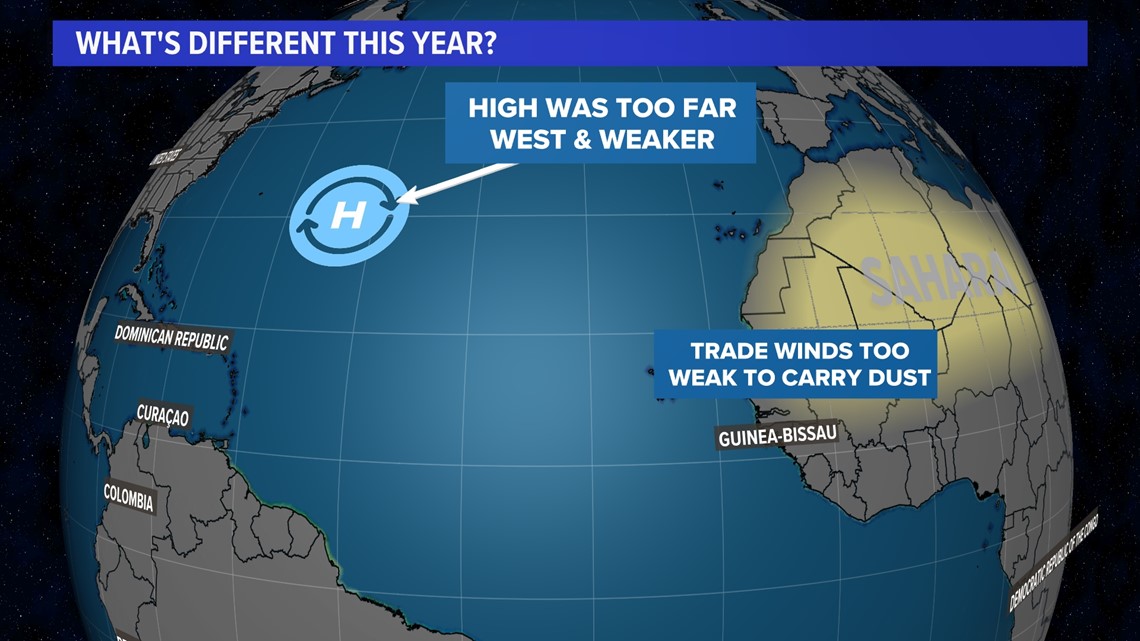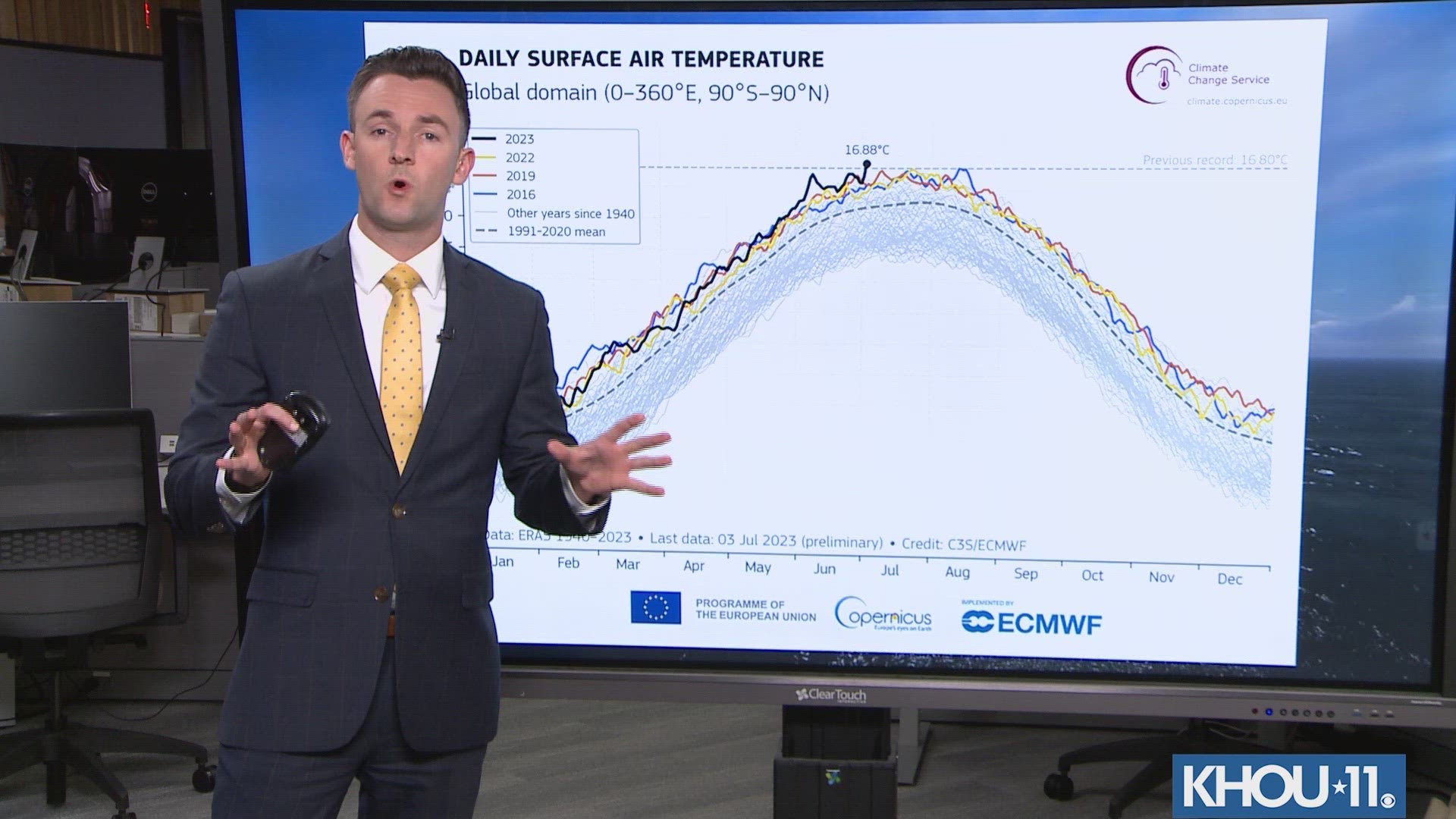HOUSTON — Monday was the warmest day ever recorded on Earth.
How hot was it?
The global temperature was 16.88 degrees Celsius, which is 62.38 degrees Fahrenheit. Records go back to 1940. It broke a record that was set in 2016.
How was it calculated?
The temperature was calculated using observations and model data from the European computer model (ECMWF). Meteorologists use the ECMWF on a daily basis to forecast everything from high temperatures to systems in the tropics. This data came from the climate monitoring service known as Copernicus.
The number is a combination of air temperatures over land and over water.
What caused it?
The record warmth was likely a combination of climate change enhancing natural variability, such as El Niño.
What impact will it have on Houston?
Warmer water temperatures could impact the tropics.
What's driving it?
Strengthening El Niño conditions have led to warmer-than-normal water temperatures in the equatorial Eastern Pacific Ocean.
Additionally, water temperatures in the Atlantic have been running well above normal.


What's different this year?
Normally, early in the summer, high pressure in the Eastern Atlantic leads to an increase in trade winds.
These trade winds can lead to upwelling, which brings cooler water from deeper depths toward the surface. These trade winds also bring dust over the Atlantic from the Sahara desert that blocks sunlight, which also reduces the water temperature.
This year, the high has been too far west and weaker, leading to less wind and dust -- meaning warmer water temperatures.


What's next?
The warmer global temperatures mean more fuel for tropical systems to develop and also the potential for heavier rain events since warmer temperatures hold more water vapor.
In the last few weeks, the high has become stronger, leading to more wind shear and dust over the tropical Atlantic.

